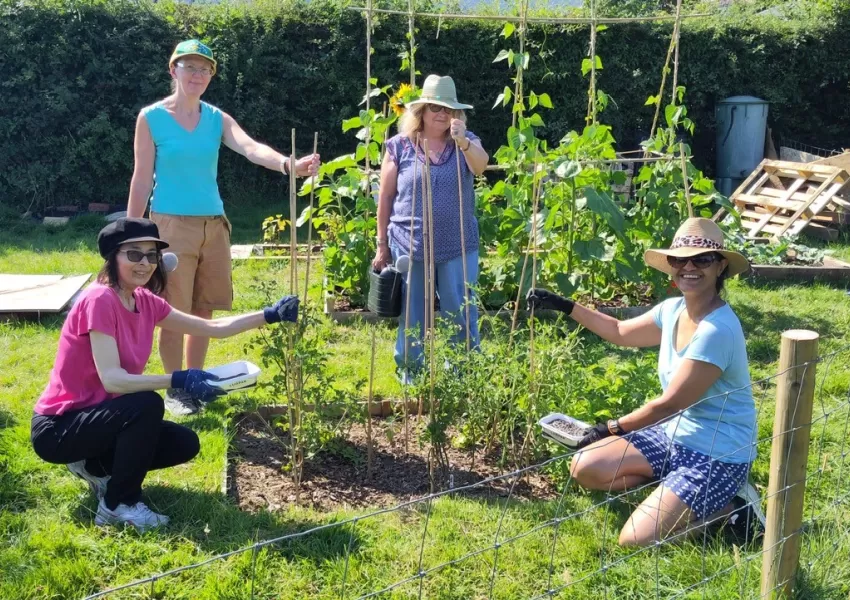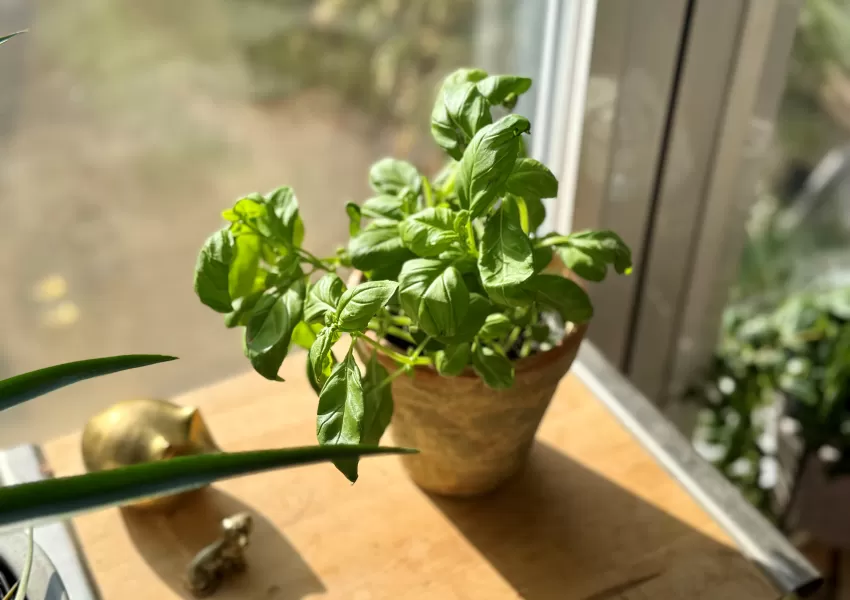Grow Yourself Healthy – How Growing Food Can Help Your Health
Growing your own food is more than just a hobby – it can also be a way to take control of your health and wellbeing. Some GPs in London and now in Barnet, are even prescribing food growing to support patient health.
No garden required! You can grow veg, herbs and fruit in pots (even strawberries), on balconies and windowsills, and you can take part in community gardens for even bigger projects.
Here, we’ll explore some health benefits of food growing and hopefully plant a seed in your mind about growing food this spring.
How is food growing good for health?
Eat better:
Food growing is a cost-effective way to access fresh vegetables, fruits and herbs, which are needed for a healthy diet. This can help us avoid processed foods, which are linked to poor health and obesity.
Research found that households with an adult who takes part in a community garden, are 3.5 times more likely to eat the recommended 5-a-day of fruit and veg, and if children take part, it helps set them up for healthier eating - for life!
- Contributes to a healthy diet and eating habits
- You can grow varieties of produce, sometimes not available in shops
- Community gardens improve food availability
Get moving:
Gardening is a moderate form of exercise that can improve levels of activity and fitness.
It burns an average of 300 calories per hour, which can be around the same amount as going to the gym.
By increasing our heart rate and burning calories, gardening regularly can reduce the risk of cardiovascular conditions like heart disease and stroke. It can also be a form of ‘low-impact exercise’ that causes less pressure on joints.
- Burns around 300 calories per hour
- Improves strength and flexibility
- Supports a healthy weight
- Can be low-impact exercise
- Aids recovery and rehabilitation
Feel happier:
Spending time outdoors gives us a connection to nature which can reduce stress, anxiety, depression and other mental health conditions.
Caring for a plant, watching it grow and harvesting a crop to eat, gives a wonderful sense of achievement. Just imagine making a pasta, curry or soup with all your own tomatoes!
Community gardens and allotments also encourage socialising and connecting with others, helping to reduce loneliness.
Some participants from the first year of our Food Growing Leaders project reported feeling more connected to their communities and having better wellbeing at the end of the programme.
- Reduces stress, anxiety and depression
- A way to meet people
- Boosts mood by connecting to nature
- Gives a sense of achievement
Be greener:
Growing your own food cuts down on food transportation, packaging and waste. Food plants also help insects like bees and butterflies which are needed for our food system.
Community gardens are especially handy because they create green spaces in urban areas. With one in five households in London having no access to a garden, they give everyone a chance to interact with nature and grow their own food.
- Reduces waste
- Helps bees and butterflies
- Creates a healthier living environment
So, what do you say? Dig In!
Find out about food growing opportunities in Barnet

